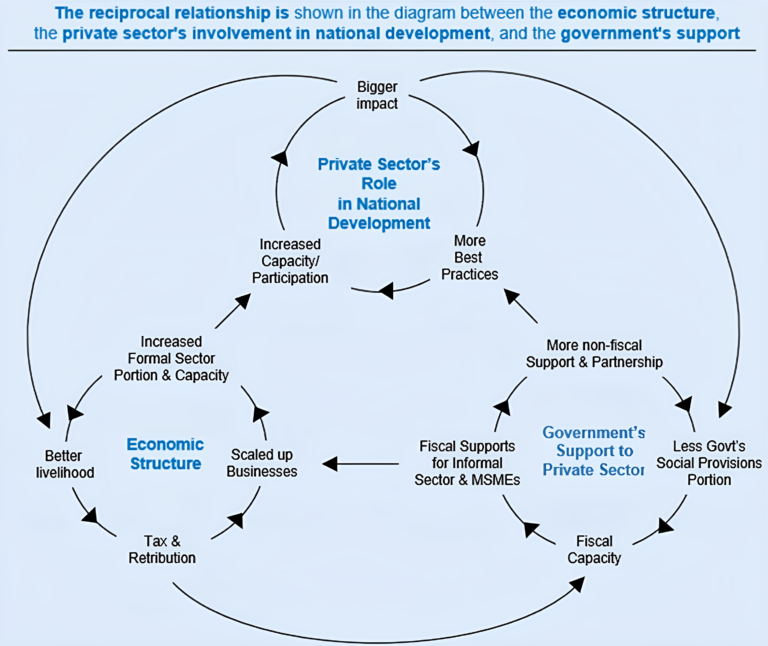Author:
IBC Team
21 August 2024
While the Indonesian private sector holds significant promise for driving national development, a closer examination reveals that a vast majority of this sector is composed of micro, small, and medium-sized enterprises (MSMEs), which operate predominantly within the informal economy.
- Dominance of Micro-sized Businesses: The Indonesian economic landscape is characterized by a staggering dominance of micro-sized businesses, accounting for 99.62% of the total business entities. This composition presents unique challenges and opportunities in harnessing these entities for national development.
- Underrepresentation of Larger Enterprises: Larger enterprises make up a minuscule portion of the economic structure, indicating that the potential for large-scale corporate social initiatives is underutilized.
With the informal sector’s contribution to GDP in Indonesia still relatively high compared to advanced economies, there’s an imperative for Indonesia to accelerate its economic structure transformation. This shift can foster a more conducive environment for the private sector and MSMEs to contribute more substantially and sustainably to national development initiatives.
An enhanced economic structure, fostered by government backing of MSMEs, boosts private sector engagement, generating a greater impact on national development through a positive feedback loop.
- Private Sector’s Role in National Development: An empowered private sector with increased capacity and participation leads to greater economic impact.
- Economic Structure: The economic structure is strengthened notably by scaling up Micro, Small, and Medium Enterprises (MSMEs), which is vital for improving the overall economic foundation and enhancing livelihoods.
- Government Support to Private Sector: The government aids the private sector, particularly MSMEs, through fiscal support and partnerships, crucial for fostering an environment where these enterprises can thrive and contribute meaningfully to national development.
Thus, the reciprocal relationship shows that the betterment of the economic structure is central, achieved through empowering and leveling up MSMEs, which is essential for sustainable development and economic prosperity.

An Enhanced Economic Structure based on Reciprocal Relationship
Indonesia’s strategy for enhancing the contribution of micro, small, and medium-sized enterprises (MSMEs) to national development requires a more streamlined approach from government bodies. Currently, The effort to improve Indonesia’s informal sector and MSMEs currently falls under the jurisdiction of multiple government bodies, leading to several notable disadvantages.
First, this fragmented approach can result in overlapping responsibilities and duplicative efforts, reducing overall efficiency. Without a unified strategy, resources are often allocated ineffectively, and initiatives may conflict or compete rather than complement each other.
Secondly, this multiplicity can slow decision-making and response times to changing market conditions, inhibiting the agility needed to effectively support SMEs in a dynamic economic environment.
To optimize support for MSMEs and encourage the formalization of the informal sector, three strategic recommendations for better orchestration are proposed:
- Centralizing Oversight: Strengthening the centralized role of the Ministry of Cooperation and SMEs (KemenKopUKM) to build a cohesive and aligned approach across government sectors is crucial. This would entail a coordinated effort to oversee and implement MSME development initiatives.
- Streamlining Processes: The government should simplify procedures and improve inter- departmental communication, allowing MSMEs to benefit from more accessible and coherent support systems.
- Developing a National SME Strategy: An integrated national strategy for SME development is essential. This strategy should encompass clear objectives, measurable progress indicators, and a unified action plan to ensure all efforts are convergent towards enhancing the SME sector.


